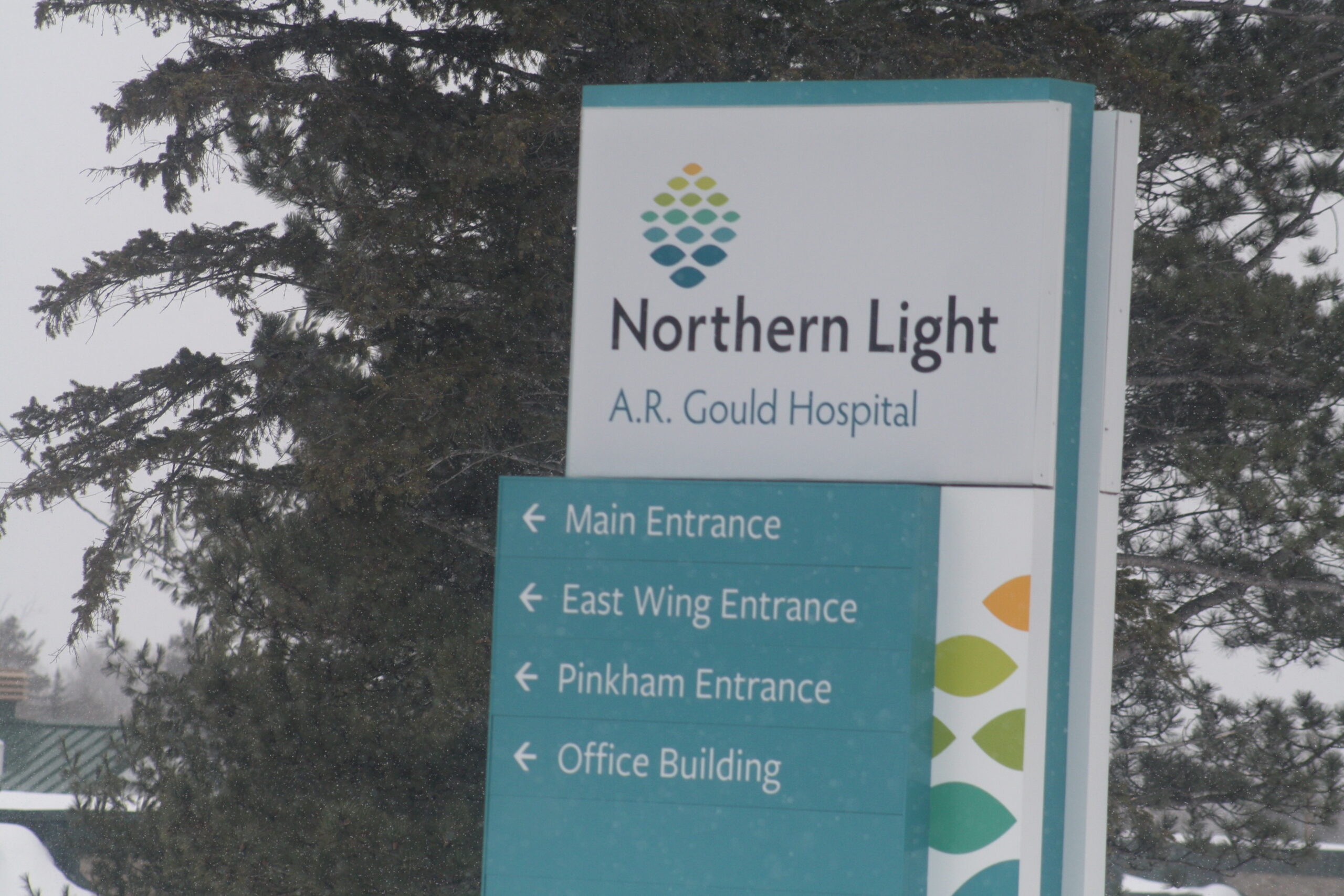PRESQUE ISLE, Maine — Presque Isle’s Northern Light A.R. Gould Hospital has trimmed limitations on visitors and services due to the low number of COVID-19 cases in Aroostook County.
Effective Thursday, June 11, hospital staff will permit one visitor per day for inpatients between 3 and 6 p.m. Staff will continue to require visitors to follow safety protocols — such as a temperature check and COVID-19 screening — at the hospital’s main entrance. Visitors are also required to wear a face-covering while inside the hospital.
Patients in most inpatient units will be allowed one unique visitor each day. The one exception is the Women and Children’s Unit, where one specified visitor will be allowed inside for the duration of a patient’s stay, as that unit contains the hospital’s most vulnerable patients.
The hospital’s day surgery unit has also re-opened, though visitors are only permitted to accompany patients in special circumstances — including if the patient is a minor or has special needs.
Many restrictions will continue at the hospital indefinitely, including a prohibition on most visitors into the Emergency Department’s waiting room and treatment area. Only one parent or guardian of a minor or one visitor with a patient who is cognitively impaired will be permitted in those locations.
The hospital will also continue to restrict most visitors from accompanying patients in outpatient offices, including pediatrics, oncology, eye care and obstetrics.
Visitors will continue to be prohibited at Northern Light Continuing Care in Mars Hill. End of life residents may request visitors on a case by case basis.
The same is true at Presque Isle Rehab and Nursing Center, where administrator Mark McKenna said he had to discontinue an outside visit program after rule violations.
After restricting visitors since March 14 to prevent the spread of the virus, the center began allowing outdoor visits last week. Residents and visitors were both required to wear facemasks and stay six feet away from one another.
The home had to cancel that policy because several families refused to follow the guidelines, McKenna said.
“It’s really sad to have to discontinue the visits,” McKenna said. “But, we must protect our residents from contracting the virus.”
Group homes such as nursing homes have been some of the most hard hit locations in the United States since the beginning of the COVID-19 pandemic, with close quarters living allowing the virus to be easily transmitted. Fifty-five are believed to have died of the virus at one care home in Brooklyn, New York.
On the plus side, the nursing home had received tremendous support from the community during the pandemic, McKenna said. Last week, a local church donated two iPads, allowing staff to expand digital meetings between residents and family or friends.
They had also received donations of food such as pizza and doughnuts. Children had even sent the center hand-drawn cards.
Additionally, no resident had contracted the flu during the flu season. In March, McKenna had predicted that regulations to prevent the spread of COVID-19 would restrict the spread of the flu in the facility.
The changes at A.R. Gould were part of a gradual expansion of hospital services over the past few weeks, hospital president Greg LaFrancois said. Like many hospitals across the United States, the facility had reduced non-essential care in March to prevent the spread of COVID-19 within the facility and prepare for a local outbreak.
Though such an outbreak has not yet occurred — which LaFrancois attributed to “vigilance” from the community — he said the hospital continued to be prepared to treat patients with COVID-19 in the future.








